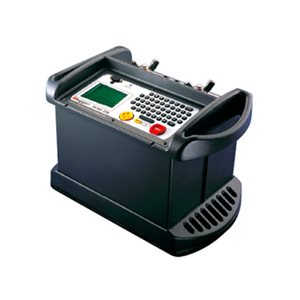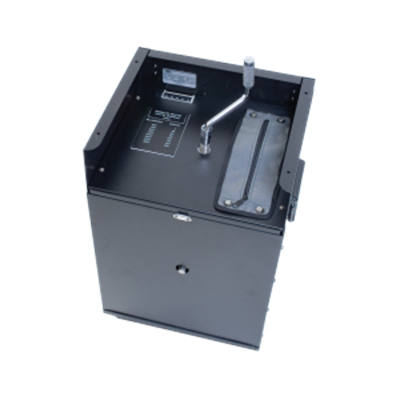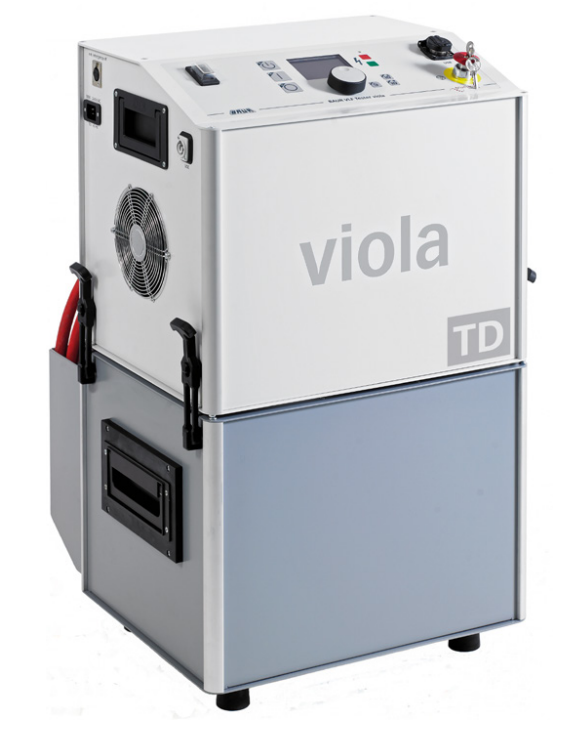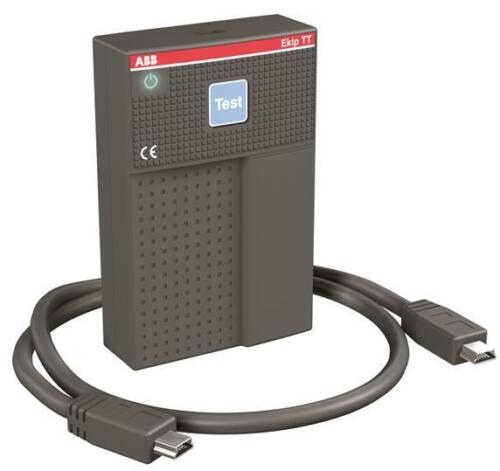Megger DLRO200 measures resistances between 0.1 µ? and 1?, at high currents of up to 200 amps.
This versatile instrument can provide test currents from 10 amps up to 200 amps subject to the load resistance and supply voltage. A large liquid crystal display provides all the information needed to perform a test; all test parameters and measurement results are displayed.
The unique design allows the weight and size of Megger's DLRO200 to be kept to a minimum; the instrument weighs less than 15 kg. This small size makes DLRO200 equally at home in the workshop, on the production floor or in the field. The high current capability and compact design make DLRO200 suitable for testing circuit breaker contacts, switch contacts, busbar joints or other applications where high current is needed.
300 sets of results may be stored in DLRO200's on board memory for later download to a PC or may be output directly to a printer via the RS232 port. You may also add notes to any stored result by using the on board alpha-numeric keypad, thereby making later identification of results straightforward.
As well as adding notes to stored results, the alphanumeric keypad allows you to set the test current directly by typing in the value required. DLRO200 will check the continuity of the test circuit, and will quickly ramp the test current up to the desired level. The keyboard is also used to set upper and lower limits for the result and also to prevent the use of excessive currents by setting an upper limit to the allowable test current.
DLRO200 uses a four terminal measurement technique to cancel the resistance of the test leads from the measurement.
The Megger DLRO200 operates in one of three modes, which are simply selected from the on screen menu.
CONTINUOUS mode is provided for users who wish to monitor a resistance over a period of time. Connect the test leads, select the test current and press the TEST button. DLRO200 will pass a current continuously, and measure the resulting voltage at 2 second intervals, until the test button is pressed to stop the test or the test circuit is interrupted.
In NORMAL mode you connect the leads, select the test current and press the TEST button. The test current will ramp up to the desired level, hold for 2 seconds and then ramp down. The whole process takes approximately 10 seconds.
In AUTO mode select the desired current, connect the current leads and press the TEST button. The TEST lamp will flash to show that the DLRO200 is ready to carry out a test. As soon as the potential leads are connected, a test will start. To repeat the test, simply break the circuit by removing the voltage probes, then re-make contact.
Measuring individual joints in a busbar is a good example of the convenience to be gained by using AUTO mode. The two current leads are connected to the ends of the busbar. They will remain connected here until all tests have been completed. When the voltage leads make contact across a joint, DLRO200 detects that all four leads are connected, carries out a test and stops. When you move to the next joint DLRO detects the new completed circuit automatically and carries out the next test, and so on until all joints have been tested. The results may be stored automatically and may be recalled to the display or downloaded for review.
Features
- Four terminal measurement technique eliminates effects of test lead resistance
- Test currents from 10 amps to 200 amps
- Best resolution of 0.1 Ohms
- Multiple test modes allows for a wide variety of testing
- On board memory saves up to 300 test results with notes
- RS232 port allows test results to be downloaded to a PC or output to printer in real time
- Compact and weighs less than 15 kg
- Large LCD screen for easy to read test information
- On board alpha-numeric keypad for adding notes to stored results and setting test current limits
- Supplied with PC software and 5 metre test leads



